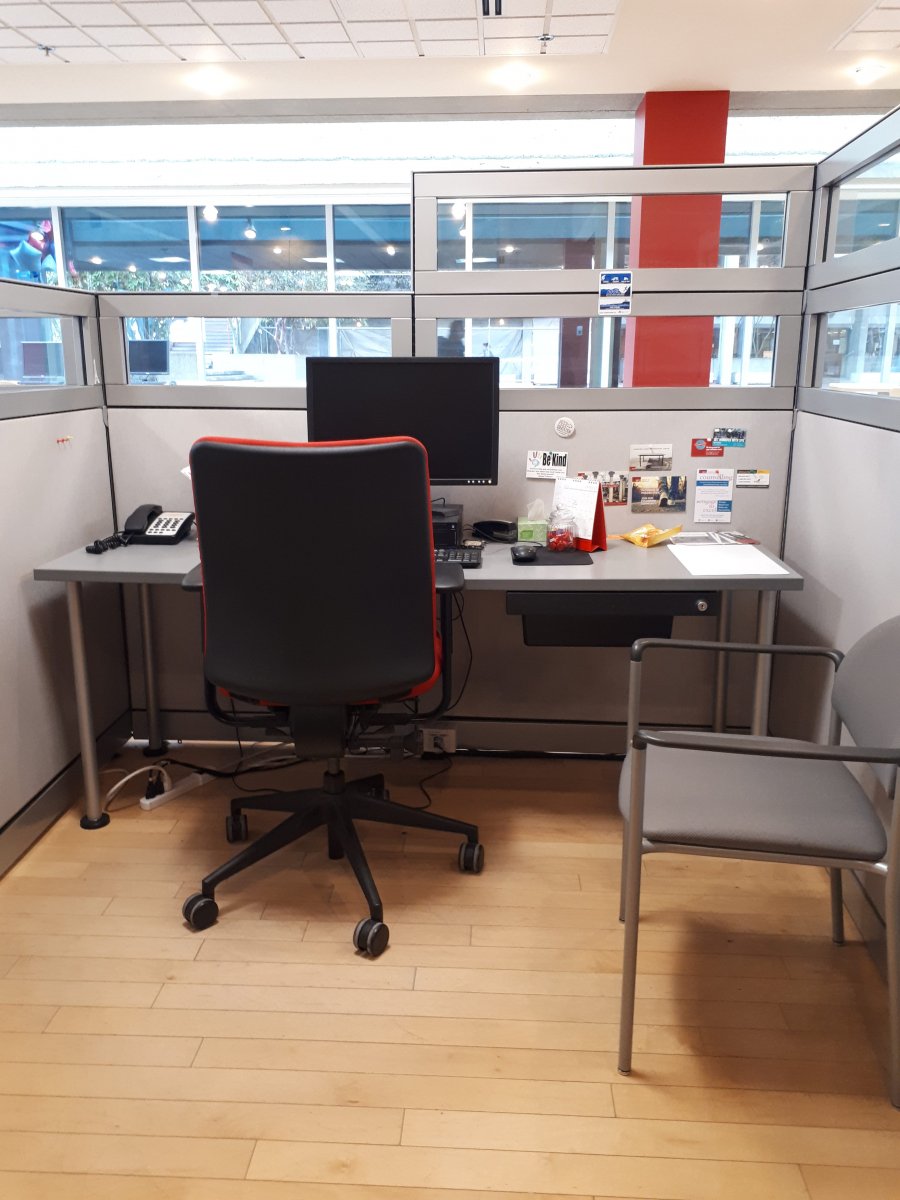
You’re going to mess up. No matter what type of a person you are - a perfectionist, an extrovert, or a class clown, you’re going to mess up. But that’s alright. The best way to improve is to make mistakes and learn from them. However, when in practice and on the job, especially if you are a mentor to someone, you may realize that your particular mistake can cause a significant and irreversible impact on the person you are advising, and you may end up beating yourself up for it.
Relax! Yes, you may have made a mistake, but it is how you handle the consequences that count. Due to the nature of academic advising, there will be a lot of emotional aspects to each appointment that may take a toll on you, but you will have to learn to take a break. Take a walk, talk to your co-workers about it, or eat something!
As a Student Academic Advisor, accepting the fact that you won’t be able to help every single student that walks into your office is important because you don’t want to set yourself up for failure. There will be different types of students walking into your office, those who know what they want, those who have no clue about what they want and yet refuse to talk to you, and others who expect you to tell them what they want. The list goes on.
There are many ways you can manage different types of students, whether they are easy to talk to, or difficult to handle. Following are the ways in which are how I tried to help each student that came into my office:
Open with a greeting, then listen to their first response. Are they open to talking to you, or are they trying to end the conversation quickly? If they are willing to talk to you, it will probably be a smooth sail from here on out but if they aren’t, you have to make a distinction between the actual possibility of them not wanting to talk to you, or their possibly shy personality; and act accordingly.
Listening and paying attention to the physical cues a student gives you is also very important as those are the signs that will help you decide what type of resources you should bring up to help them. Should you continue discussing academic requirements or should you discuss their goals, or problems they are facing in school instead?
Smile as often as you can (when appropriate). You are meeting someone completely new, and so are they, so it is definitely going to be difficult for them to automatically open up to you and tell you about their hardships, or their goals which makes establishing trust very important.
Finally, use your own personal experiences to empathize with the student. But talk about not just your achievements, but also your failures. Your failures make you who you are, just as much as your successes do, and talking about them will help you connect with the student. While no one wants to talk about how they failed, how they may be looked down upon by their peers, their family, or society but by openly admitting that you have encountered failure, and still hold the job that you have, you may be able to comfort the student.

However, as you progress through your job, you may begin to get more and more involved with your students while also tackling your daily responsibilities. All this can become exhausting easily. Therefore, it is important that you maintain your own mental and physical health while on the job. I was a full-time student pursuing an English and Psychology double major before I started my co-op as a Student Academic Advisor with Simon Fraser University.
I studied every single semester while working as a part-time English tutor for three and a half years before I decided I wanted to do a co-op. As a workaholic, I was very willing to trade my mental stability for productivity, whether that be in terms of getting a higher grade at school or earning a higher income from my part-time job. The point is, I was willing to make the trade. I was a tad overconfident in my own ability to tackle the problems ahead of me. Not only that, but I was also afraid of failure which made my encounter with the endless foreign situations all the more difficult to handle.
There were days when I felt that I truly helped a student, whether by reassuring them of their current choices or informing them of new opportunities that they didn’t know existed; and there were also days when I felt overwhelmed by the sheer number of complex situations that each student brought to me, and I felt the need to maintain my composures despite my inner fears. There were also days where I had absolutely nothing to do; and gave into overthinking, rattled by the unpleasant thoughts seeping into my mind.
Beyond my daily routine of appointments and interactions with students around my age, I was also faced with the endless flow of interaction with my co-workers. What I once believed to be an easily conquerable hiccup, became a daily struggle - I had struggled to learn how to speak to and work with people who were at different stages in their lives. Part of the problem I faced was that I was unfamiliar with interacting with people older than myself and was afraid that I was doing things incorrectly, or even worse, I wasn’t doing enough. Was I just supposed to be courteous and greet my co-workers every morning and be done with it? Or is making small talk and trying to be friends with them important too? Was I required to go out of my way to do tasks for my co-workers simply because they had more experience than me? While the dynamic may be different from workplace to workplace, I learned that being courteous and expressing your gratitude to mentors who have helped and trained you should be the bare minimum.
Just like facing your failures, you have to face the reality that while there will be people on your team that you will hit it off with, despite a looming age gap, there will also be people who may seem to have a lot in common with you, but you won’t get along with them no matter how much you try. It’s like dating - we all have people that we are immediately attracted to, and then others whom we will never find attractive despite how much they might fit our “ideal” type.
During my time as a Student Academic Advisor, I was able to reflect on the life that I had chosen before co-op, my current life as a student doing a co-op, and the potential life I would lead once I leave my co-op and ultimately university. These are questions that I reluctantly wandered towards during my co-op, and I appreciate the supportive environment that was provided for me while I began to confront this reality. I had run away from these challenges initially, in fear that my inability to cope was a failure in itself. However, I ended up speaking to one of my co-workers about the problems I was facing. She suggested that I ask our manager for more work, and possibly speak with her about the issues I was facing, and come up with possible solutions together.
I realized then that in the workplace, and in life if there something is wrong, you have to speak up about it for it to change. If you don’t have enough work, you have to ask someone for more work; if you have too much work, you have to tell your manager to give you less work. If you don’t feel that you are being treated equally, you have to speak up, and if you feel that you are not being paid the amount that you should be paid, you have to ask for what you believe you deserve. Things will not change unless you create that change.
I realized that I enjoyed working more than I did going to school, and the sheer excitement I felt in finding out, step-by-step, what I wanted to do with my future was exhilarating. This position allowed me to discover my strengths and weaknesses, both as a person and as an integrated worker in a company. I appreciate this new-found knowledge about myself because I wouldn’t have been able to learn so much if I had just studied and gone to school.
Beyond the Blog
-
Check out Student Services to talk with an Academic Advisor!
-
For more opportunities like Carina's, visit the FASS co-op page!













